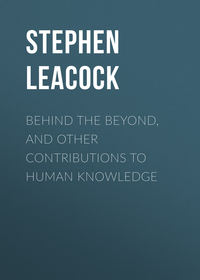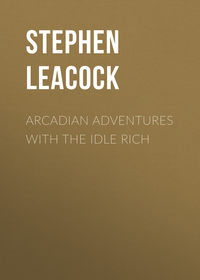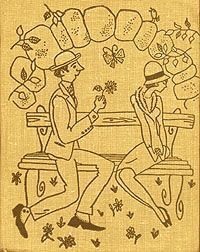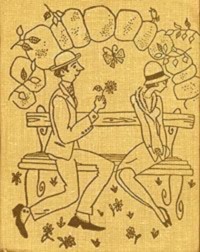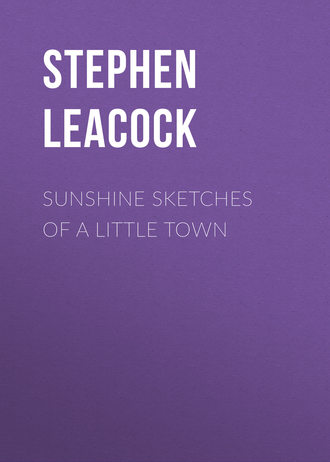 полная версия
полная версияSunshine Sketches of a Little Town
It is almost night now. You can still see the trees and the fences and the farmsteads, but they are fading fast in the twilight. They have lengthened out the train by this time with a string of flat cars and freight cars between where we are sitting and the engine. But at every crossway we can hear the long muffled roar of the whistle, dying to a melancholy wail that echoes into the woods; the woods, I say, for the farms are thinning out and the track plunges here and there into great stretches of bush,—tall tamerack and red scrub willow and with a tangled undergrowth of bush that has defied for two generations all attempts to clear it into the form of fields.
Why, look, that great space that seems to open out in the half-dark of the falling evening,—why, surely yes,—Lake Ossawippi, the big lake, as they used to call it, from which the river runs down to the smaller lake,—Lake Wissanotti,—where the town of Mariposa has lain waiting for you there for thirty years.
This is Lake Ossawippi surely enough. You would know it anywhere by the broad, still, black water with hardly a ripple, and with the grip of the coming frost already on it. Such a great sheet of blackness it looks as the train thunders along the side, swinging the curve of the embankment at a breakneck speed as it rounds the corner of the lake.
How fast the train goes this autumn night! You have travelled, I know you have; in the Empire State Express, and the New Limited and the Maritime Express that holds the record of six hundred whirling miles from Paris to Marseilles. But what are they to this, this mad career, this breakneck speed, this thundering roar of the Mariposa local driving hard to its home! Don't tell me that the speed is only twenty-five miles an hour. I don't care what it is. I tell you, and you can prove it for yourself if you will, that that train of mingled flat cars and coaches that goes tearing into the night, its engine whistle shrieking out its warning into the silent woods and echoing over the dull still lake, is the fastest train in the whole world.
Yes, and the best too,—the most comfortable, the most reliable, the most luxurious and the speediest train that ever turned a wheel.
And the most genial, the most sociable too. See how the passengers all turn and talk to one another now as they get nearer and nearer to the little town. That dull reserve that seemed to hold the passengers in the electric suburban has clean vanished and gone. They are talking,—listen,—of the harvest, and the late election, and of how the local member is mentioned for the cabinet and all the old familiar topics of the sort. Already the conductor has changed his glazed hat for an ordinary round Christie and you can hear the passengers calling him and the brakesman "Bill" and "Sam" as if they were all one family.
What is it now—nine thirty? Ah, then we must be nearing the town,—this big bush that we are passing through, you remember it surely as the great swamp just this side of the bridge over the Ossawippi? There is the bridge itself, and the long roar of the train as it rushes sounding over the trestle work that rises above the marsh. Hear the clatter as we pass the semaphores and switch lights! We must be close in now!
What? it feels nervous and strange to be coming here again after all these years? It must indeed. No, don't bother to look at the reflection of your face in the window-pane shadowed by the night outside. Nobody could tell you now after all these years. Your face has changed in these long years of money-getting in the city. Perhaps if you had come back now and again, just at odd times, it wouldn't have been so.
There,—you hear it?—the long whistle of the locomotive, one, two, three! You feel the sharp slackening of the train as it swings round the curve of the last embankment that brings it to the Mariposa station. See, too, as we round the curve, the row of the flashing lights, the bright windows of the depot.
How vivid and plain it all is. Just as it used to be thirty years ago. There is the string of the hotel 'buses, drawn up all ready for the train, and as the train rounds in and stops hissing and panting at the platform, you can hear above all other sounds the cry of the brakesmen and the porters:
"MARIPOSA! MARIPOSA!"
And as we listen, the cry grows fainter and fainter in our ears and we are sitting here again in the leather chairs of the Mausoleum Club, talking of the little Town in the Sunshine that once we knew.





